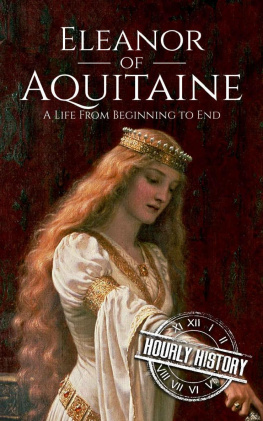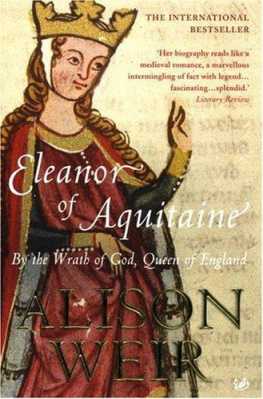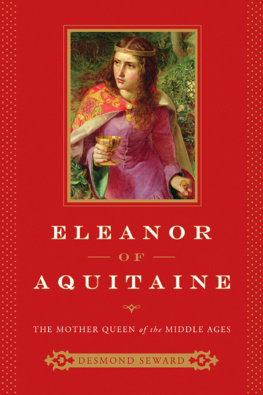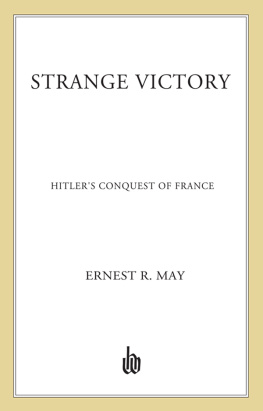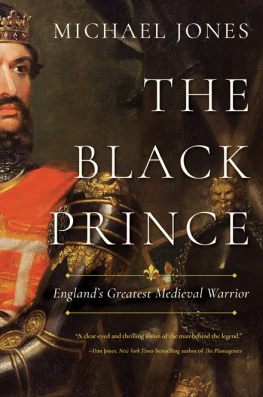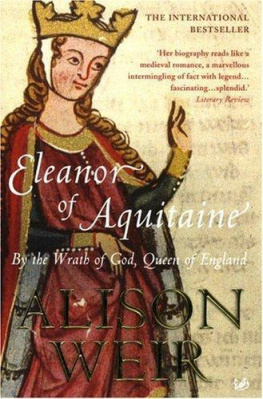Richard Ballard - England, France and Aquitaine: From Victory to Defeat in the Hundred Years War
Here you can read online Richard Ballard - England, France and Aquitaine: From Victory to Defeat in the Hundred Years War full text of the book (entire story) in english for free. Download pdf and epub, get meaning, cover and reviews about this ebook. year: 2019, publisher: Casemate Publishers & Book Distributors, LLC, genre: History. Description of the work, (preface) as well as reviews are available. Best literature library LitArk.com created for fans of good reading and offers a wide selection of genres:
Romance novel
Science fiction
Adventure
Detective
Science
History
Home and family
Prose
Art
Politics
Computer
Non-fiction
Religion
Business
Children
Humor
Choose a favorite category and find really read worthwhile books. Enjoy immersion in the world of imagination, feel the emotions of the characters or learn something new for yourself, make an fascinating discovery.
- Book:England, France and Aquitaine: From Victory to Defeat in the Hundred Years War
- Author:
- Publisher:Casemate Publishers & Book Distributors, LLC
- Genre:
- Year:2019
- Rating:5 / 5
- Favourites:Add to favourites
- Your mark:
- 100
- 1
- 2
- 3
- 4
- 5
England, France and Aquitaine: From Victory to Defeat in the Hundred Years War: summary, description and annotation
We offer to read an annotation, description, summary or preface (depends on what the author of the book "England, France and Aquitaine: From Victory to Defeat in the Hundred Years War" wrote himself). If you haven't found the necessary information about the book — write in the comments, we will try to find it.
Richard Ballard: author's other books
Who wrote England, France and Aquitaine: From Victory to Defeat in the Hundred Years War? Find out the surname, the name of the author of the book and a list of all author's works by series.
England, France and Aquitaine: From Victory to Defeat in the Hundred Years War — read online for free the complete book (whole text) full work
Below is the text of the book, divided by pages. System saving the place of the last page read, allows you to conveniently read the book "England, France and Aquitaine: From Victory to Defeat in the Hundred Years War" online for free, without having to search again every time where you left off. Put a bookmark, and you can go to the page where you finished reading at any time.
Font size:
Interval:
Bookmark:

England, France and Aquitaine
From Victory to Defeat in the Hundred Years War
Richard Ballard

First published in Great Britain in 2020 by
Pen & Sword Military
An imprint of
Pen & Sword Books Ltd
Yorkshire Philadelphia
Copyright Richard Ballard 2020
ISBN HB: 978 1 52676 859 9
PB: 978 1 52676 863 6
ePUB ISBN 978 1 52676 860 5
Mobi ISBN 978 1 52676 861 2
The right of Richard Ballard to be identified as Author of this work has been asserted by him in accordance with the Copyright, Designs and Patents Act 1988.
A CIP catalogue record for this book is available from the British Library.
All rights reserved. No part of this book may be reproduced or transmitted in any form or by any means, electronic or mechanical including photocopying, recording or by any information storage and retrieval system, without permission from the Publisher in writing.
Pen & Sword Books Limited incorporates the imprints of Atlas, Archaeology, Aviation, Discovery, Family History, Fiction, History, Maritime, Military, Military Classics, Politics, Select, Transport, True Crime, Air World, Frontline Publishing, Leo Cooper, Remember When, Seaforth Publishing, The Praetorian Press, Wharncliffe Local History, Wharncliffe Transport, Wharncliffe True Crime and White Owl.
For a complete list of Pen & Sword titles please contact
PEN & SWORD BOOKS LIMITED
47 Church Street, Barnsley, South Yorkshire, S70 2AS, England
E-mail:
Website: www.pen-and-sword.co.uk
Or
PEN AND SWORD BOOKS
1950 Lawrence Rd, Havertown, PA 19083, USA
E-mail:
Website: www.penandswordbooks.com
T his book has its origin in a conversation with M. Marc Seguin, historian of South-West France, at Jonzac in 2013 during which he suggested that the origin of my familys name might be found among emigrants from Gascony after the French conquest of Bordeaux in the mid-fifteenth century. He recommended that I read the 19th century study of those events by Henri Ribadieu. I found it on the website Gallica of the Bibliothque nationale franaise , and it has had a great deal to do with the structure of this book.
Soon afterwards, Mme Vronique Martin, then responsible for the Jonzac site of the Departmental Archives of the Charente-Maritime, introduced me to M. Alain Paul, a retired archivist, who invited me to walk over the battlefield of Castillon in the company of a group engaged in revising an older account of the battle. It was he who pointed me in the direction of Malcolm Vales work. I had already heard the recoltants at Saintes market who announced that their wine from Castillon had been nourished by the blood of the English.
The acquisition of books and articles began and I met other interesting people, such as my neighbour M. James Pitaud, also an historian of the region which at the time was changing its name to Nouvelle Aquitaine. Mme Martin and her team made their resources available to me, as did the staff of the Municipal Library of the Haute-Saintonge, also in Jonzac. Members of the Municipal Council encouraged me in the production of an illustrated guide to their town the castle at Jonzac, in an older version, was sometimes occupied by the English in the Hundred Years War but they did not mind an Englishman involving himself in such an enterprise.
It was often pointed out that, historically, the Haute-Saintonge looked more towards Bordeaux than Paris, so I was led to the newly opened and glorious building which houses the Archives Mtropole de Bordeaux where medieval documents are found, both in their original form and printed in bound volumes, edited by historians of the Third Republic and after, which their guardians welcomed me to investigate on several occasions. I was guided to several French websites, such as Cairn and Perse, which reproduce learned articles from recent and not so recent journals, comparable with the English and American ones like Wiley and Jstor. Then the Gascon Rolls Project was suggested, and there was no going back. British History Online made its appearance.
Memories of lectures by E.F. Jacob and K.B. McFarlane revived themselves, as well as the fascinating tutorials with Vivien Green, whose The Later Plantaganets had not long been published at the time, and of which my most vivid relevant memory (after sixty years) is his explanation of the mystique which surrounded medieval kings.
In personal terms, my thanks are due to the many people who have helped this book see the light of day. Tom Edlin, who teaches this period for A Level students at Westminster School, read the entire text in its (longer) draft form in his Christmas holidays wishing me a festive season more Edward IV than Henry VI. Henrietta Hopkins also read it, since she is my style guru and offered indispensable assistance over proofreading. All my family in two generations encouraged me, as did my dear friend Lucie.
There are many others who helped me in this enterprise as they came and went in the last six years to whom I owe my gratitude, among them Martin Ableman, who found me several treasures in book sales around England. I owe much to Dr. Lester Crook who, on this occasion and on two others previously, has taken up what I have offered and ensured its publication.
Richard Ballard
Jonzac, Versailles, 20132019
T he story begins with a committee of bishops meeting at Beaugency in March 1152 to announce the nullity of Eleanor of Aquitaines marriage to King Louis VII of France. They had been married for fifteen years seven as king and queen and had two daughters. She thought she had married a monk. He thought she was too feisty and there were rumours about her and her uncle Raymond at Antioch on their ill-fated crusade. They were separated by the churchmen on grounds of consanguinity since they were both descended from King Robert II of France, she in five degrees of it and he in four.
Eleanor had met Henry Plantagenet before, and he held lands bordering on hers in Poitou. She was nine years older than he. Whether there was love kindled between them or not, it would be a very suitable match. He would protect her from the marriage-market predators and she would unite her southern lands with his. It only took two months for them to be married in Poitiers. They visited Aquitaine together, and saw how independent-minded the indigenous nobility was. Two years later, he would inherit England by his treaty with Stephen of Blois. They would have the sons that Eleanor did not have with Louis. Louis was reluctant to give Aquitaine up, but by 1153 he had, and Henry was Duke of Aquitaine before he became king of England.
Their son John, early on as a joke called Lack-land by his father, lost everything except Aquitaine by the battle of Bouvines in 1204 to Philip Augustus, King of France. Aquitaine was presumed to be an allod , that is, independent as a duchy, and Philips claim stopped short at the mouth of the Gironde. At the same time, Alfonso VIII of Castille wanted to expand his kingdom northwards, at first by diplomatic effort and then by siege. He started by demanding Bayonne but the Bayonnais said they would only surrender to him if the Bordelais did and they didnt.
Duke John thanked the citizens ( prudhommes ) of Bordeaux, Bazas and Saint-Emilion in a letter of 29 April 1205 for their resistance to French and Castillian diplomatic intrigues. Bordeaux was besieged by the Castillians in either 1205 or 1206. The Bordelais successfully organized resistance by their own efforts, there being no one else to turn to. They seem, on the basis of liberties offered them in 1199 by Eleanor and John, to have had a municipal assembly of some kind. John wrote to the jurats and the bourgeoisie of Bordeaux on 4 February 1200, recognizing the existence of such a political entity. Faced with the Castillians siege, this body seems to have transformed itself, so that by 30 April 1206, when he wrote again, John refers to the mayor, jurats and loyal subjects of Bordeaux over the appointment of a seneschal, and the need for foreigners in the town to take an oath of fidelity to the king and to the commune . He sent another letter to the mayor, the commune , the seneschal of Gascony and the royal bailiff. So the town (using the French term rather than calling it a city) had at the time of the siege some kind of autonomous municipal organisation. The town had no royal charter, but necessity and danger were the cause of its coming onto being. It was to this de facto government that John wrote his letter but added the royal seneschal to the structure of government.
Font size:
Interval:
Bookmark:
Similar books «England, France and Aquitaine: From Victory to Defeat in the Hundred Years War»
Look at similar books to England, France and Aquitaine: From Victory to Defeat in the Hundred Years War. We have selected literature similar in name and meaning in the hope of providing readers with more options to find new, interesting, not yet read works.
Discussion, reviews of the book England, France and Aquitaine: From Victory to Defeat in the Hundred Years War and just readers' own opinions. Leave your comments, write what you think about the work, its meaning or the main characters. Specify what exactly you liked and what you didn't like, and why you think so.


